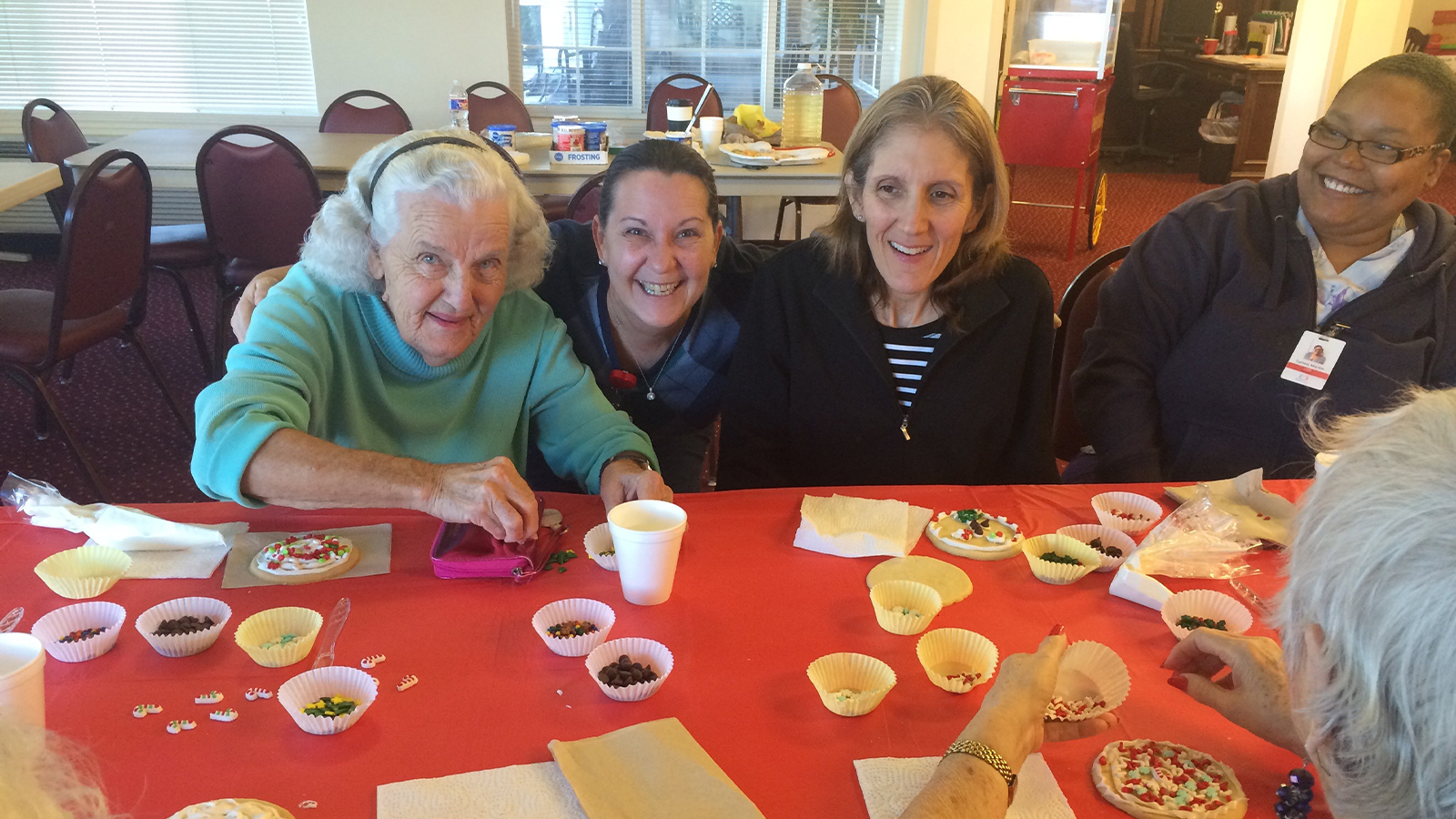Benefits of Respite Care for Family Caregiver Well-Being
Apr
28
2025
As a family caregiver, you invest countless hours in caring for your loved one. This role is both noble and demanding but often can lead to burnout. In-Home Respite Care allows you to rest and recharge by providing temporary relief, allowing you to take a break.
This break is vital for the quality of care for your loved one. It ensures you can maintain a positive relationship with them.
You’re First Home Care, a leading home care service in Houston, Texas, recognizes the value of respite care. We offer customized services to meet your needs. This helps you achieve a balance, ensuring a healthy relationship with your loved one.
Key Takeaways
- Respite care provides short-term relief for family caregivers, allowing them to rest and recharge.
- Taking breaks is essential for preventing caregiver burnout and maintaining mental and emotional well-being.
- Respite care enables caregivers to better manage their responsibilities and maintain a healthy balance between caregiving and personal life.
- You’re First Home Care offers tailored respite care services in Houston, Texas, to support caregivers and care recipients.
- Respite care can lead to improved caregiver-patient relationships and better overall care.

The Importance of Respite Care for Caregivers
Respite care is a vital lifeline for caregivers, giving them much-needed breaks from caregiving’s demands. It helps reduce stress, prevent burnout, and allows for self-care and mental health focus.
Providing care for a loved one can be emotionally and physically draining. Respite residential care offers a temporary reprieve, enabling caregivers to take a break, recharge, and prioritize their well-being. This break is essential for maintaining a healthy balance and preventing burnout. It also allows the person receiving care to receive a change of scenery.
Reducing Stress and Burnout
Respite care is a key tool for reducing caregiver stress and preventing burnout. It provides temporary relief from caregiving duties, allowing caregivers to:
- Rest and recharge
- Engage in hobbies and interests
- Spend time with family and friends
- Attend to personal appointments and errands
Allowing Time for Self-Care and Physical Health
Self-care is essential for caregivers to maintain their health and well-being. Respite care offers the time and space for caregivers to engage in self-care activities, such as:
- Exercise and physical activity
- Relaxation and stress-reduction techniques
- Pursuing personal interests and hobbies
- Attending support groups or counseling sessions
Improving Mental and Emotional Well-Being
Respite care significantly contributes to caregivers’ physical and mental health. It reduces stress and allows self-care, helping caregivers:
- Maintain a positive outlook
- Improve emotional resilience
- Enhance overall quality of life
- Strengthen relationships with care recipients and other family members
| Respite Care Benefits | Impact on Caregivers |
| Stress reduction | Improved mental health and well-being |
| Burnout prevention | Sustained ability to provide quality care |
| Opportunities for self-care | Enhanced physical and emotional resilience |
| Improved caregiver quality of life | Stronger relationships with care recipients and family |
By focusing on their own needs through respite care, caregivers can offer better care to their loved ones. Respite care is a critical part of caregiver support, ensuring the health and happiness of both caregivers and care recipients.
This is especially true depending on the type of care your loved one is receiving. Respite care supports breaks for dementia care, palliative care, and long-term care.

Benefits of Respite Care for Care Recipients
Respite care is not just a relief for caregivers; it also brings significant benefits to care recipients. It enhances the quality of life for the person receiving care by providing socialization and engagement opportunities. This, in turn, boosts their overall well-being. Here are some of the other key benefits of respite care.
Providing Socialization Opportunities
One key advantage of respite care for the person requiring care is the chance for social interaction. These services often include group activities, outings, and events. They allow care recipients to connect with others in a supportive setting. This can help combat loneliness and isolation, common issues among older adults. In many cases, family caregivers are juggling many roles between caring for their loved one, and their own families. There may be limited time for outings and socialization.
Engaging in social activities through respite care also provides mental stimulation. It helps care recipients maintain their cognitive function. Examples of socialization opportunities include:
- Group discussions and reminiscence therapy
- Arts and crafts sessions
- Music and dance activities
- Outings to local attractions or events including church gatherings
Learn more about our Therapeutic Care Services.
Enhancing Quality of Life
Professional respite care can provide an improvement to the overall quality of life for care recipients. Professional caregivers in these settings provide compassionate, person-centered care. They address each individual’s unique needs and preferences while maintaining quality of care provided by the care plan.
Respite professional care introduces care recipients to new experiences and activities. This exposure to novel environments and stimuli promotes independence and improves well-being.
Utilizing respite care enhances quality of life in several ways:
- Providing access to adapted activities and equipment
- Offering personalized attention and care
- Encouraging independence and choice in daily routines
- Facilitating connections with the broader community
By focusing on the specific needs and preferences of each care recipient, respite care can enhance their quality of life.
Types of Respite Care Options
Exploring the different respite care options is vital when caring for a loved one. These services cater to the unique needs of both care providers and care recipients. Understanding the various types of respite care helps you find the perfect match for your family.
In Home Care
In-home care is a favored option that lets your loved one receive help at home. Professional caregivers provide personalized care, including daily activities, medication reminders, and companionship care. It is ideal for those who value their familiar surroundings and routines.
Adult Day Care Centers
Adult day care centers offer structured programs and activities in a safe, supervised setting during the day. They provide socialization, engaging activities, and meals, giving caregivers a much-needed break. Many centers specialize in memory care for those with Alzheimer’s or dementia.
Short-term Stays in Assisted Living or Skilled Nursing Facilities
For more extensive care needs, short-term stays in assisted living or skilled nursing care facilities are a viable option. These facilities offer 24/7 care, medical support, and various amenities. They are perfect for post-hospital recovery or when caregivers need a break.
Specialized Programs for Unique Needs
Respite care providers also offer specialized programs for individuals with unique needs. These include developmental disabilities, chronic illnesses, or mobility challenges. The programs feature adapted activities, therapy services, and trained staff for a safe, enriching experience. Seeking out these specialized programs ensures your loved one receives the best care.
When looking into respite care services, consider your family’s needs, budget, and the level of care required. Reach out to local facilities, agencies, or support organizations for advice. By exploring the various respite care options, you can ensure your well-being while providing your loved one with the care they need.
Respite Care and Caregiver-Patient Relationships
Respite care brings significant benefits to both caregivers and care recipients, improving their relationship quality. It gives caregivers temporary relief, allowing them to focus on their well-being. This leads to healthier communication, stronger emotional bonds, and increased patience and understanding.
Fostering Healthier Communication
Breaks and self-care activities enhance caregivers’ positive approach to their roles. This renewed energy fosters more meaningful interactions with care recipients. Caregivers become better listeners, express empathy, and respond with compassion. Respite care promotes open communication, essential for trust and understanding in caregiving relationships.
Strengthening Emotional Bonds
Respite care enhances the emotional connection between caregivers and care recipients. Caregivers, after enjoying their breaks, return with renewed purpose and appreciation. This leads to more positive interactions and a deeper bond. Prioritizing their well-being, caregivers build emotional resilience for high-quality care and strong relationships.
Promoting Patience and Understanding
Caregiving is emotionally demanding, often leading to frustration and exhaustion. Respite care offers much-needed breaks, reducing these negative feelings. Recharged caregivers approach their duties with patience and understanding. This improves care quality and enhances caregiving experience for both parties.
Conclusion – Respite Care for Family Caregivers
As you navigate the caregiving journey, it is vital to understand the role of respite care. It is essential for both your well-being and that of your loved one. Partnering with a trusted home care services provider like You’re First Home Care in Houston, Texas, offers the support and resources needed. This helps maintain a healthy balance and improves caregiver-patient relationships.
Respite care offers temporary relief and brings numerous benefits, including reduced stress and opportunities for self-care. It also enhances the quality of life for care recipients. By using respite care services, you can strengthen emotional bonds and foster better communication. This leads to patience and understanding in your caregiving relationship.
Remember, seeking respite care for family caregivers is not a sign of weakness. It is a proactive step towards ensuring the best care for your loved one and yourself. Embrace the resources available to you. Do not hesitate to reach out to You’re First Home Care for compassionate, professional caregiver support in the Houston area. Together, you can navigate caregiving challenges and create a more positive, fulfilling experience for everyone involved.
FAQ
How can respite care help reduce stress and burnout for caregivers?
Respite care provides high-quality care and offers short-term relief, allowing primary caregivers to rest or engage in activities they enjoy. This temporary care break is vital for mental and emotional rejuvenation. Caregivers often spend 24 hours a week caring for others, leading to physical and emotional exhaustion. By using respite services, you can avoid burnout and maintain a healthier balance between caregiving and personal life.
What are the benefits of respite care for care recipients?
Respite care boosts the well-being and quality of life for care recipients by providing social interaction. It allows them to engage in activities and connect with others, preventing isolation. This also introduces them to new experiences and environments, enriching their lives and fostering independence.
What types of respite care services are available?
Respite care services offer a range of options to support both caregivers and care recipients. These include in-home care, adult day care centers, short-term stays in assisted living or skilled nursing facilities, and specialized programs for individuals with unique needs.
How can respite care improve caregiver-patient relationships?
Respite care can enhance caregiver-patient relationships by promoting healthier communication and emotional bonds. Taking breaks allows caregivers to approach their role with renewed energy and positivity. This leads to more meaningful interactions and a deeper connection with the care recipient.
Why is self-care important for caregivers?
Self-care is essential for caregivers as it prioritizes their physical, mental, and emotional well-being. Respite care enables caregivers to reduce stress, prevent burnout, and achieve a better work-life balance. Engaging in self-care activities recharges caregivers, enabling them to return to their role with renewed energy and positivity.
Other Resources to Explore
4300, Respite Care Services | Texas Health and Human Services
Reach Out






